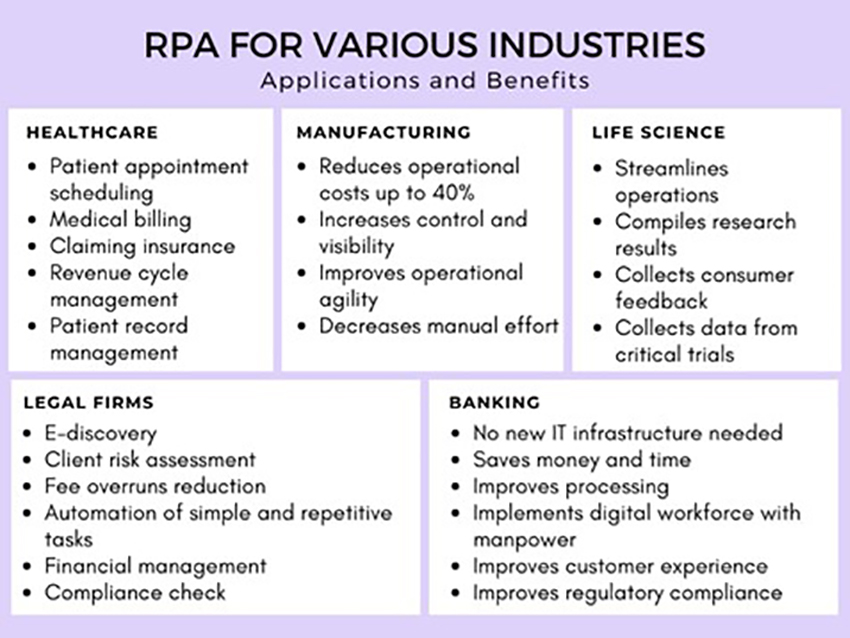Robotic Process Automation (RPA) is one of the fastest growing automation solutions. This advanced software technology incorporates business logic and structured inputs to automate business processes. Even with the availability of advanced technologies, data conversion services have an important role to play in this digital transformation. To enhance digitization, the user interface of the robots can be employed to capture data and manipulate applications. Almost all sectors, from healthcare and manufacturing to insurance, banking, transport and logistics, are now incorporating RPA into their functioning. Business process outsourcing companies help businesses utilize RPA for repetitive, rules-based business processes such as data entry and data extraction among many others.
Other industries that can benefit from RPA.
RPA services can ease manual tasks and reduce costs. Business process outsourcing companies help businesses leverage RPA technology to improve operational efficiency and drive growth.





